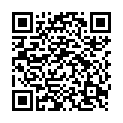|
|
|
| Module code: E515 |
|
|
4V (4 hours per week) |
|
5 |
| Semester: 5 |
| Mandatory course: yes |
Language of instruction:
German |
Assessment:
Written exam after 5th semester
[updated 12.03.2010]
|
E515 (P211-0018) Electrical Engineering, Bachelor, ASPO 01.10.2005
, semester 5, mandatory course
|
60 class hours (= 45 clock hours) over a 15-week period.
The total student study time is 150 hours (equivalent to 5 ECTS credits).
There are therefore 105 hours available for class preparation and follow-up work and exam preparation.
|
Recommended prerequisites (modules):
E101 Mathematics I
E104 Fundamentals of Electrical Engineering I
E201 Mathematics II
E203 Fundamentals of Electrical Engineering II
E301 Mathematics III
[updated 13.03.2010]
|
Recommended as prerequisite for:
|
Module coordinator:
Prof. Dr. Albrecht Kunz |
Lecturer:
Prof. Dr. Albrecht Kunz
[updated 13.03.2010]
|
Learning outcomes:
Students will acquire a broad understanding of the established techniques and approaches used in modern communications engineering.
They will be able to describe, compare and assess the conventional analogue and digital techniques used in transmission technology.
By learning a range of different approaches and methods, students will be in a position to teach themselves the details of modern complex communications systems thus enabling them to keep themselves up-to-date with the latest developments in the field.
By incorporating the results of simulations into the lectures, students will acquire the ability to interpret numerical and graphical data, allowing them to compare and critically assess the performance of different techniques.
[updated 13.03.2010]
|
Module content:
1.Fundamentals of signal and systems theory
2.Bandpass to low-pass transformation
3.Analogue modulation techniques
4.Theory and applications of PLLs
5.Signal transmission via digitally modulated carriers
6.Properties of transmission channels
7.Concepts in mobile communications
[updated 12.03.2010]
|
Teaching methods/Media:
Overhead transparencies, PC, video projector
[updated 12.03.2010]
|
Recommended or required reading:
Jondral, Friedrich: Nachrichtensysteme, J. Schlembach Fachverlag,
Mäusl, Rudolf: Analoge und digitale Modulationsverfahren, Hüthig-Verlag,
Kammeyer, Karl Dirk: Nachrichtenübertragung, Teubner-Verlag,
Werner, Martin: Nachrichtentechnik, Vieweg,
Holma, Harri: WCDMA for UMTS, John Wiley & Sons,
Korhonen, Juha: Introduction to 3G mobile communications, Artech House Publishers
[updated 12.03.2010]
|


